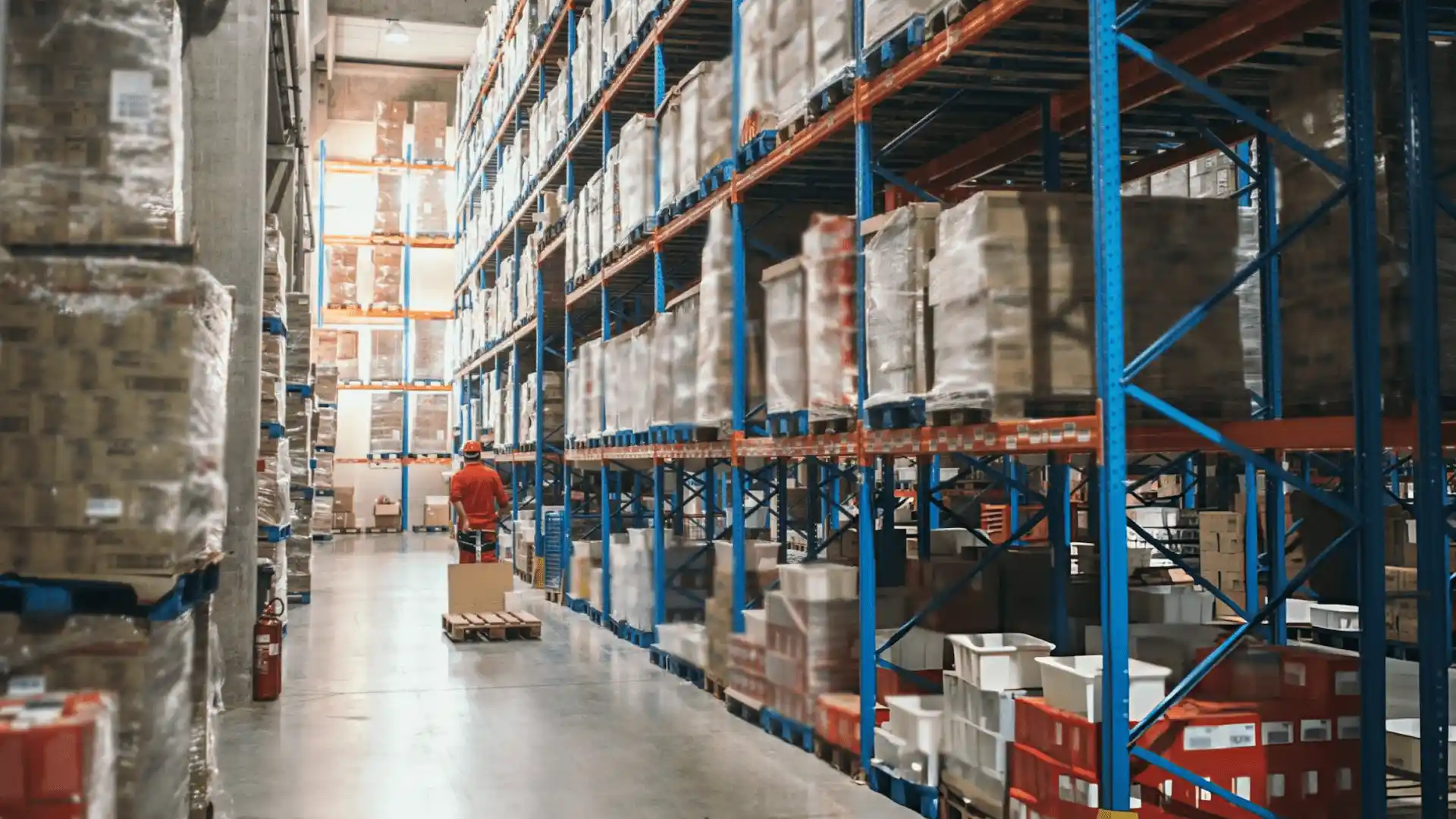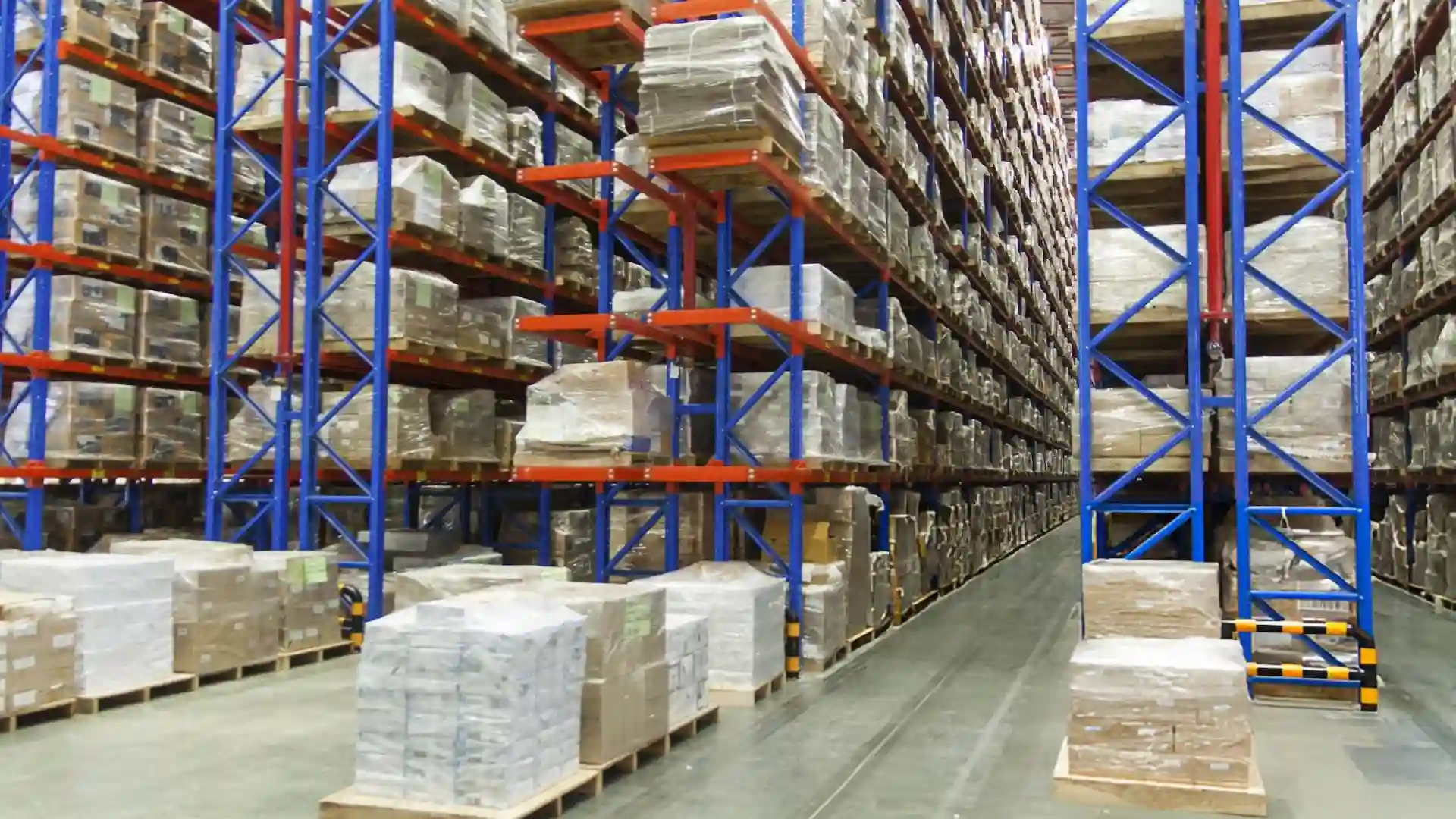How Fulfillment Centers Work: A Complete Guide for Ecommerce Businesses

In today’s fast-paced eCommerce landscape, order fulfillment centers play a crucial role in ensuring efficient logistics and rapid shipping. Whether you’re a small business looking to streamline your shipping process or an enterprise seeking scalable fulfillment solutions, understanding how order fulfillment works is essential.
This guide explores everything about order fulfillment centers, including how they operate, the benefits they offer, and how to find the best fulfillment center for your business.
What Are Order Fulfillment Centers?
At their core, order fulfillment centers are specialized facilities that handle the storage, processing, and shipping of products on behalf of businesses. Unlike traditional warehouses, which primarily focus on long-term storage, fulfillment centers manage the entire order fulfillment process—from inventory management to pick and pack fulfillment to final delivery.
When a customer places an order, a fulfillment center is responsible for:
- Receiving Inventory – Products arrive from manufacturers and suppliers.
- Storage & Organization – Items are stored efficiently for quick retrieval.
- Pick and Pack Fulfillment – Once an order is placed, staff picks the correct item and packs it securely.
- Shipping & Delivery – Orders are dispatched via major shipping carriers for fast delivery.
How Do Order Fulfillment Centers Work?
The order fulfillment process involves multiple steps to ensure accurate and timely deliveries. Here's a closer look at the workflow:
1. Receiving & Storing Inventory
When businesses send their products to an order fulfillment warehouse, items are cataloged, organized, and stored for easy retrieval. Advanced warehouse fulfillment software helps track inventory levels and optimize storage.
2. Order Processing & Pick and Pack Fulfillment
Once a customer places an order, fulfillment staff quickly pick and pack the correct items. Some warehouse fulfillment services use automation, conveyor belts, and robotic systems to speed up this process.
3. Shipping & Delivery
After packing, the order is labeled and shipped through carriers like UPS, FedEx, or USPS. Some order fulfillment centers offer same-day or two-day shipping options to meet customer expectations.
Why Order Fulfillment Centers Are Essential for eCommerce
For many eCommerce businesses, managing logistics in-house can be expensive and time-consuming. By outsourcing to a product fulfillment warehouse, businesses can:
- Reduce Shipping Costs – Fulfillment centers have partnerships with major carriers, offering discounted shipping rates.
- Improve Shipping Speeds – With strategically located warehouses, businesses can reach customers faster.
- Scale Efficiently – Fulfillment services allow businesses to grow without investing in expensive warehousing.
- Focus on Core Business – Instead of handling logistics, businesses can concentrate on sales and marketing.
Types of Order Fulfillment Centers
There are different types of order fulfillment warehouses, each catering to specific business needs:
1. eCommerce Fulfillment Centers
Many online retailers use eCommerce fulfillment centers to process high volumes of orders. For example, Amazon fulfillment centers manage millions of orders daily through their Fulfillment by Amazon (FBA) program.
2. Third-Party Fulfillment Centers (3PL)
A third-party fulfillment center (3PL) is operated by a separate company that provides warehouse fulfillment services for multiple businesses. These providers handle storage, packing, and shipping while offering additional features like inventory forecasting and returns processing.
3. Small Business Fulfillment Centers
Smaller eCommerce brands often partner with fulfillment centers for small business that offer personalized service, custom packaging, and flexible pricing. These centers integrate with platforms like Shopify, WooCommerce, and BigCommerce to streamline order fulfillment.
Choosing the Right Order Fulfillment Center Near Me
Finding the best fulfillment center near me can enhance customer satisfaction and reduce costs. Here’s what to consider when choosing a provider:
- Location: A fulfillment center near your customer base ensures faster delivery and lower shipping costs.
- Service Offerings: Look for services like pick and pack fulfillment, returns processing, and subscription box fulfillment.
- Scalability: Your fulfillment partner should be able to accommodate your business’s growth.
- Technology Integration: Ensure the fulfillment center integrates with your eCommerce platform for real-time inventory tracking.
Examples of Top Order Fulfillment Centers
1. Amazon Fulfillment Centers
Amazon's FBA (Fulfillment by Amazon) program allows third-party sellers to store their products in Amazon fulfillment centers. Amazon handles order processing, shipping, and customer service, making it a popular choice for eCommerce businesses.
2. eBay Fulfillment Centers
eBay’s order fulfillment warehouses provide a similar service, allowing sellers to store and ship products with eBay’s logistics network.
3. New York Fulfillment Centers
For businesses targeting the Northeast, a New York fulfillment center offers strategic advantages, ensuring quick delivery times to one of the largest consumer markets in the U.S.
4. Midwest Fulfillment Centers
Businesses looking to optimize shipping times across the U.S. often choose Midwest fulfillment centers. A fulfillment center in Chicago, for example, can efficiently serve both East and West Coast customers, reducing transit times and costs.
5. West Coast Fulfillment Centers
For companies with a significant customer base in California and surrounding states, a Salt Lake City fulfillment center provides fast shipping to the West Coast and easy access to international shipping hubs. These fulfillment centers help businesses manage high order volumes efficiently.
How Warehouse Fulfillment Software Optimizes Operations
Modern warehouse fulfillment software automates various tasks, including:
- Inventory Management – Tracks stock levels and prevents overselling.
- Order Processing – Reduces errors and speeds up pick and pack fulfillment.
- Shipping Automation – Selects the best carrier and generates tracking numbers automatically.
Benefits of Partnering with an Order Fulfillment Center
Outsourcing to an American fulfillment center or a USA fulfillment center offers multiple advantages:
- Lower Overhead Costs – Reduces the need for warehouse space and labor.
- Faster Shipping Times – Nationwide networks allow quicker delivery.
- Enhanced Customer Satisfaction – Reliable shipping improves customer retention and reviews.
Conclusion
Order fulfillment centers are essential for eCommerce success, enabling businesses to scale efficiently while ensuring fast and accurate deliveries. Whether you need a small business fulfillment center or a nationwide warehouse fulfillment company, choosing the right provider is crucial.
If you're looking for a trusted partner for your order fulfillment needs, Atomix Logistics can help. Our fulfillment centers offer tailored solutions to streamline logistics and improve customer satisfaction. Discover how we can optimize your eCommerce fulfillment process. Get your free fulfillment quote today!
Frequently Asked Questions (FAQs) About Fulfillment Centers
What is a fulfillment center and how does it work?
A fulfillment center is a specialized facility that stores products, processes orders, and ships them directly to customers on behalf of businesses. The process includes:
- Receiving inventory from suppliers or manufacturers.
- Storing products in an organized manner for quick access.
- Picking and packing orders when a customer makes a purchase.
- Shipping items via carriers like UPS, FedEx, or USPS.
Fulfillment centers help businesses streamline logistics, reduce operational costs, and provide fast, efficient order fulfillment.
What’s the difference between a fulfillment center and a warehouse?
Although both fulfillment centers and warehouses store inventory, they serve different purposes:
- A warehouse primarily holds inventory for long-term storage and bulk distribution.
- A fulfillment center actively manages order processing, including picking, packing, and shipping, ensuring quick turnaround times.
For eCommerce businesses, fulfillment centers provide a complete logistics solution, while warehouses are better suited for manufacturers or wholesalers storing large quantities of goods.
How do I find the best fulfillment center near me?
To choose the right fulfillment center near me, consider the following factors:
- Location: A fulfillment center near your customer base reduces shipping times and costs.
- Service Offerings: Look for providers that offer pick and pack fulfillment, returns management, and real-time inventory tracking.
- Scalability: Choose a center that can accommodate your business growth.
- Technology Integration: Ensure the fulfillment center integrates seamlessly with platforms like Shopify, WooCommerce, or Amazon.
Partnering with a regional fulfillment center in key areas, such as a Midwest fulfillment center or West Coast fulfillment center, can optimize shipping efficiency and customer satisfaction.
What types of businesses benefit from using fulfillment centers?
Fulfillment centers support a wide range of businesses, including:
- eCommerce brands – Ensuring fast and accurate shipping for online retailers.
- Subscription box companies – Managing recurring shipments efficiently.
- Retailers & wholesalers – Handling bulk order fulfillment with streamlined logistics.
- Small businesses – Reducing overhead costs by outsourcing logistics instead of managing in-house warehousing.
Any business looking to scale operations, improve shipping times, and focus on growth can benefit from using a third-party fulfillment center (3PL).
Does eBay have fulfillment centers like Amazon?
Yes, eBay fulfillment centers operate similarly to Amazon’s Fulfillment by Amazon (FBA) service. eBay’s fulfillment program allows sellers to:
- Store products in eBay’s warehouse network.
- Automate order fulfillment, including picking, packing, and shipping.
- Offer fast, reliable shipping with competitive delivery times.
This service is ideal for eBay sellers who want to streamline logistics, reduce shipping hassles, and provide faster delivery options to customers.

.svg)
.svg)
.svg)




